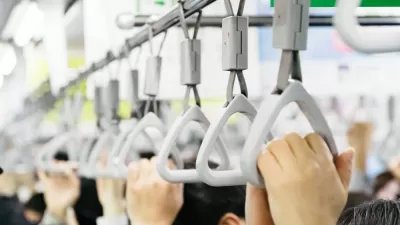A study from the University of Oregon has laid the foundation for a new level of architectural outcome: how the materials of buildings can facilitate healthy kinds of bacteria while managing the pernicious sort.
Shaunacy Ferro shares news of a study out of the University of Oregon that makes a detailed account of the variety of bacteria that inhabit the different surfaces and environments of buildings.
“Scientists haven't yet begun to pinpoint exactly which types of bacteria are good for our health, but when they do, architecture could play a key role in exposing us to the good bacteria, and keeping us away from the bad,” writes Ferro.
According to study co-author James Meadow, the findings of the report will enable architects to design buildings that influence the types of bacteria encountered by users. “Instead of just sterilizing the environment, we’ll actually manage our buildings in a more sensible way."
FULL STORY: How Architecture Could Shape Your Microbiome

Maui's Vacation Rental Debate Turns Ugly
Verbal attacks, misinformation campaigns and fistfights plague a high-stakes debate to convert thousands of vacation rentals into long-term housing.

Planetizen Federal Action Tracker
A weekly monitor of how Trump’s orders and actions are impacting planners and planning in America.

San Francisco Suspends Traffic Calming Amidst Record Deaths
Citing “a challenging fiscal landscape,” the city will cease the program on the heels of 42 traffic deaths, including 24 pedestrians.

Defunct Pittsburgh Power Plant to Become Residential Tower
A decommissioned steam heat plant will be redeveloped into almost 100 affordable housing units.

Trump Prompts Restructuring of Transportation Research Board in “Unprecedented Overreach”
The TRB has eliminated more than half of its committees including those focused on climate, equity, and cities.

Amtrak Rolls Out New Orleans to Alabama “Mardi Gras” Train
The new service will operate morning and evening departures between Mobile and New Orleans.
Urban Design for Planners 1: Software Tools
This six-course series explores essential urban design concepts using open source software and equips planners with the tools they need to participate fully in the urban design process.
Planning for Universal Design
Learn the tools for implementing Universal Design in planning regulations.
Heyer Gruel & Associates PA
JM Goldson LLC
Custer County Colorado
City of Camden Redevelopment Agency
City of Astoria
Transportation Research & Education Center (TREC) at Portland State University
Jefferson Parish Government
Camden Redevelopment Agency
City of Claremont





























